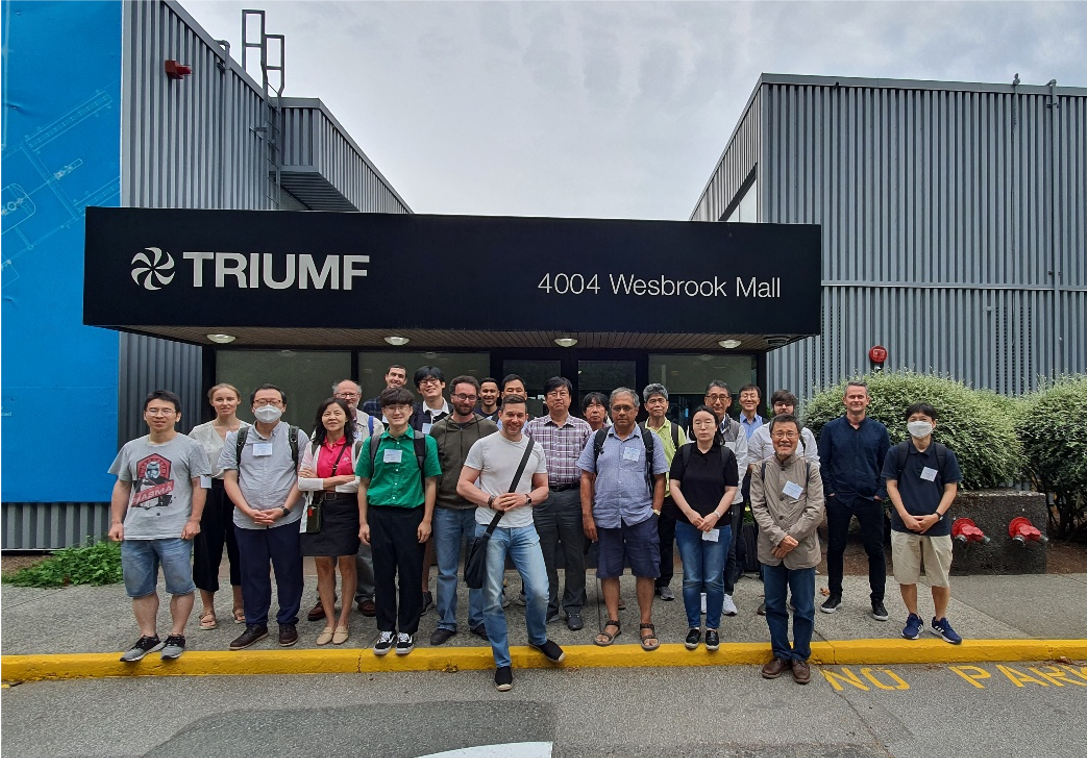2nd Joint Canada-APCTP Meeting on Nuclear Theory
→
America/Vancouver
Auditorium (TRIUMF)
Auditorium
TRIUMF
, , , , ,
Description
Nuclear physics constitutes the vital link between the ephemeral world of elementary particles and the familiar natural world of condensed-matter physics and chemistry: if elementary particles had different properties, the nuclei, and hence the chemical elements, that could exist would be quite different. The fact, for example, that no chemical element heavier than uranium occurs naturally is very much a matter of nuclear physics, and thus ultimately of particle physics. It is therefore of vital interest to be able to derive the properties of nuclei from a more fundamental standpoint, at least from the basic interactions between nucleons. The past decade has witnessed tremendous progress in the theoretical and computational tools that produce our understanding of light, medium-mass, and heavy nuclei. Different methods, often based on quite different ideas, are used to tackle various portions of the nuclear charts and/or different nuclear properties. Many of these techniques can be extended to the study of neutron stars, which in some ways can be regarded as giant nuclei, bound not by nuclear forces but by gravity. In making this cross-disciplinary link with astrophysics there is a direct feedback into nuclear physics, since it is now believed that many nuclei are synthesized through the merger of one neutron star with another, or with a black hole. We propose holding a workshop on low-energy nuclear physics that brings together practitioners of the various theoretical methods to discuss possible overlaps and cross-fertilizations. We envisage involving theorists working on ab initio calculations, the Skyrme model, and nuclear phenomenological models, allowing to explore the whole known nuclear chart, and, importantly, expanding beyond the known nuclei, which has applications in the astrophysical theatre. Because all the various theoretical approaches are aimed at describing experimental data, we plan to invite key experimental colleagues to participate in the discussions.
The meeting will be held from 8 Aug, 2022 to 12 Aug. 2022 at TRIUMF Auditorium.
The meeting is jointly sponsored by the TRIUMF Physical Sciences Division, the APTCP and the Canadian Institute for Nuclear Physics.

Registration
Registration
Participants
Antoine Belley
Baishan Hu
Changbum MOON
David Morrissey
Deuk Soon AHN
EUN JA HA
Gaute Hagen
Jason Holt
Jeong-Hyuck Park
Jeremy Holt
Joochun (Jason) Park
Kevin Hahn
Ki-Seok Choi
Lotta Jokiniemi
Manu Paranjape
Mehdi Drissi
Myung-Ki Cheoun
Nicholas Manton
Nicole Vassh
Peter Gysbers
Petr Navratil
Shung-Ichi Ando
Stefano Gandolfi
Tae-Sun Park
Yeunhwan Lim
Yongseok Oh
Yung Hee KIM
Contact